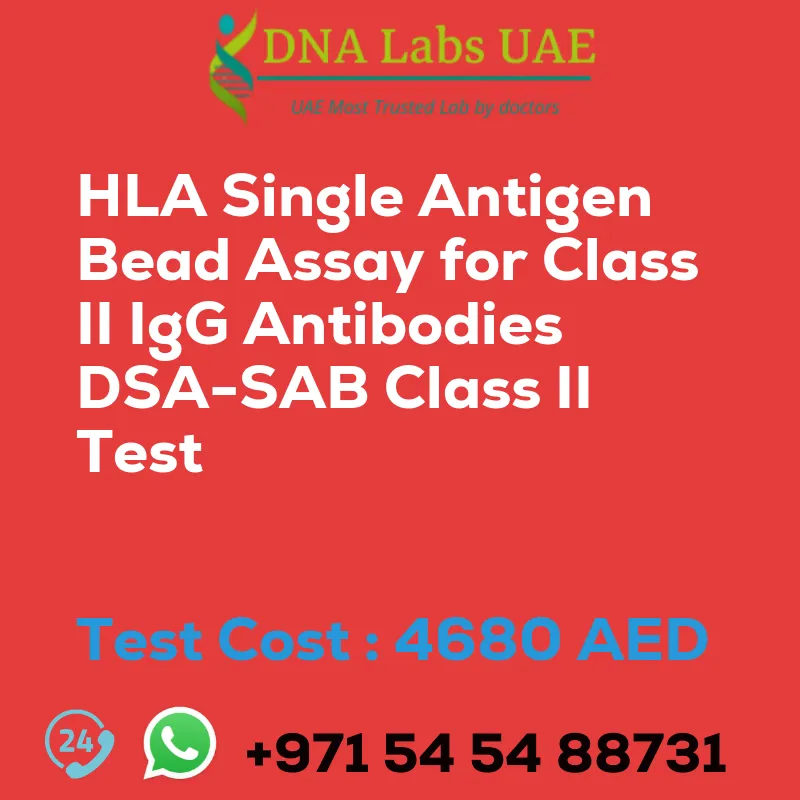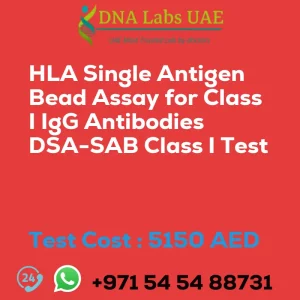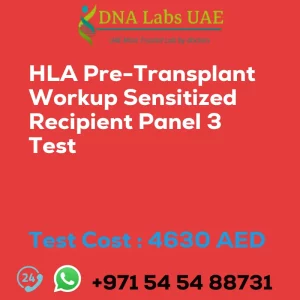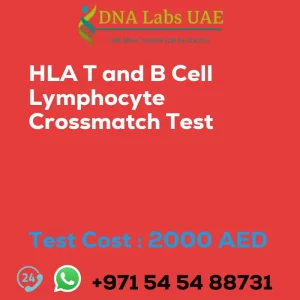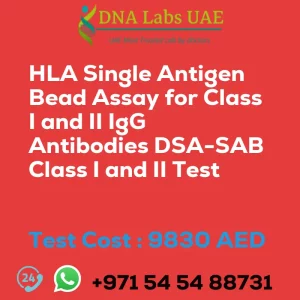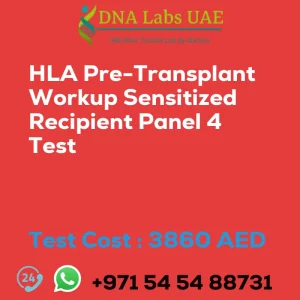HLA Single Antigen Bead Assay for Class II IgG Antibodies DSA-SAB Class II Test
Test Cost: AED 4680.0
Symptoms, Diagnosis, and Test Details
The HLA Single Antigen Bead Assay for Class II IgG antibodies (DSA-SAB Class II Test) is a laboratory test used in transplantation medicine to detect and identify specific antibodies against human leukocyte antigens (HLA) in the blood of transplant recipients.
HLA molecules are proteins found on the surface of cells that help the immune system distinguish between self and non-self cells. In transplantation, it is important to match the HLA antigens between the donor and recipient to minimize the risk of rejection. However, sometimes the recipient may develop antibodies against the donor’s HLA antigens, known as donor-specific antibodies (DSA), which can increase the risk of rejection and graft failure.
The DSA-SAB Class II Test specifically focuses on detecting and identifying IgG antibodies against Class II HLA antigens. Class II HLA antigens are found on antigen-presenting cells, such as B cells, macrophages, and dendritic cells, and are involved in the activation of T cells in the immune response.
The test utilizes fluorescently labeled beads that are coated with purified Class II HLA antigens. The patient’s serum or plasma is incubated with these beads, and if there are specific IgG antibodies against any of the Class II HLA antigens, they will bind to the corresponding beads. The beads are then analyzed using flow cytometry to determine which HLA antigens have antibodies bound to them.
The DSA-SAB Class II Test provides valuable information about the presence and specificity of IgG antibodies against Class II HLA antigens in transplant recipients. This information can help guide clinicians in assessing the risk of antibody-mediated rejection and making decisions regarding donor compatibility and immunosuppressive therapy.
Test Components and Price
Components: HLA Single Antigen Bead Assay for Class II IgG Antibodies DSA-SAB Class II Test
Price: AED 4680.0
Sample Condition
2 mL (1 mL min.) serum from 1 SST. Ship refrigerated or frozen. Give brief clinical history.
Report Delivery
10-12 days
Method
Luminex X-Map technology
Test Type
Transplantation
Doctor
Nephrologist
Test Department
Pre Test Information: Give brief clinical history.
| Test Name | HLA SINGLE ANTIGEN BEAD ASSAY FOR CLASS II IgG ANTIBODIES DSA-SAB CLASS II Test |
|---|---|
| Components | |
| Price | 4680.0 AED |
| Sample Condition | 2 mL (1 mL min.) serum from 1 SST. Ship refrigerated or frozen. Give brief clinical history. |
| Report Delivery | 10-12 days |
| Method | Luminex X-Map technology |
| Test type | Transplantation |
| Doctor | Nephrologist |
| Test Department: | |
| Pre Test Information | Give brief clinical history. |
| Test Details |
The HLA Single Antigen Bead Assay for Class II IgG antibodies (DSA-SAB Class II Test) is a laboratory test used in transplantation medicine to detect and identify specific antibodies against human leukocyte antigens (HLA) in the blood of transplant recipients. HLA molecules are proteins found on the surface of cells that help the immune system distinguish between self and non-self cells. In transplantation, it is important to match the HLA antigens between the donor and recipient to minimize the risk of rejection. However, sometimes the recipient may develop antibodies against the donor’s HLA antigens, known as donor-specific antibodies (DSA), which can increase the risk of rejection and graft failure. The DSA-SAB Class II Test specifically focuses on detecting and identifying IgG antibodies against Class II HLA antigens. Class II HLA antigens are found on antigen-presenting cells, such as B cells, macrophages, and dendritic cells, and are involved in the activation of T cells in the immune response. The test utilizes fluorescently labeled beads that are coated with purified Class II HLA antigens. The patient’s serum or plasma is incubated with these beads, and if there are specific IgG antibodies against any of the Class II HLA antigens, they will bind to the corresponding beads. The beads are then analyzed using flow cytometry to determine which HLA antigens have antibodies bound to them. The DSA-SAB Class II Test provides valuable information about the presence and specificity of IgG antibodies against Class II HLA antigens in transplant recipients. This information can help guide clinicians in assessing the risk of antibody-mediated rejection and making decisions regarding donor compatibility and immunosuppressive therapy. |

